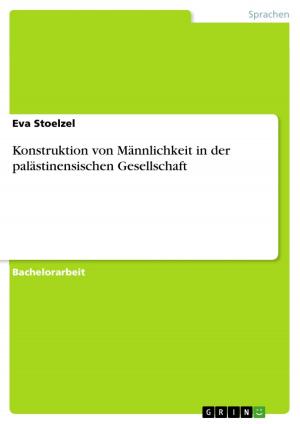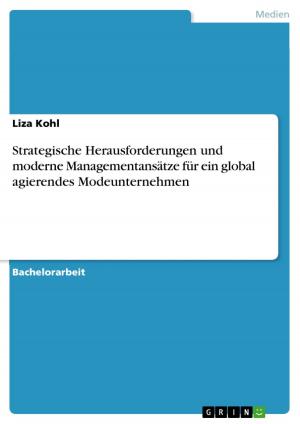Valuation of Internet Start-ups
An Applied Research on How Venture Capitalists Value Internet Start-ups Nowadays
Business & Finance, Finance & Investing, Finance| Author: | Jean-Baptiste Flanc | ISBN: | 9783656317555 |
| Publisher: | GRIN Verlag | Publication: | November 22, 2012 |
| Imprint: | GRIN Verlag | Language: | English |
| Author: | Jean-Baptiste Flanc |
| ISBN: | 9783656317555 |
| Publisher: | GRIN Verlag |
| Publication: | November 22, 2012 |
| Imprint: | GRIN Verlag |
| Language: | English |
Master's Thesis from the year 2012 in the subject Business economics - Investment and Finance, grade: none, Business School INSEEC Paris - Bordeaux, language: English, abstract: This dissertation paper deals specifically with the valuation of Internet start-ups after the burst of dot-com bubble. The objective is to contribute to the development of this field of study by filling some of the existing gaps. Indeed, it is a relatively recent subject, and the research devoted to it is still limited. It has been found that the valuation of an Internet start-up does not only depend on its stage of development, but also on five qualitative factors: the team, the business model, the market, the risk, and the exit options. In fact, venture capitalists base their valuation on the perceived growth potential of the company. Subsequently, this dissertation paper addresses the issue of intangible assets. In fact, an Internet company derives most of its value from its intellectual capital, brand equity, and website. These intangible assets, as well as their accounting treatment, are deeply analyzed. It has been noticed the misclassification of their expenses can have a considerable impact on the valuation of the company. The discounted cash flow valuation method, which is based on financial projections, and the relative valuation method, which is based on comparables, are identified and examined in-depth. Their analysis is crucial to determine how to properly value an Internet start-up.
Master's Thesis from the year 2012 in the subject Business economics - Investment and Finance, grade: none, Business School INSEEC Paris - Bordeaux, language: English, abstract: This dissertation paper deals specifically with the valuation of Internet start-ups after the burst of dot-com bubble. The objective is to contribute to the development of this field of study by filling some of the existing gaps. Indeed, it is a relatively recent subject, and the research devoted to it is still limited. It has been found that the valuation of an Internet start-up does not only depend on its stage of development, but also on five qualitative factors: the team, the business model, the market, the risk, and the exit options. In fact, venture capitalists base their valuation on the perceived growth potential of the company. Subsequently, this dissertation paper addresses the issue of intangible assets. In fact, an Internet company derives most of its value from its intellectual capital, brand equity, and website. These intangible assets, as well as their accounting treatment, are deeply analyzed. It has been noticed the misclassification of their expenses can have a considerable impact on the valuation of the company. The discounted cash flow valuation method, which is based on financial projections, and the relative valuation method, which is based on comparables, are identified and examined in-depth. Their analysis is crucial to determine how to properly value an Internet start-up.















